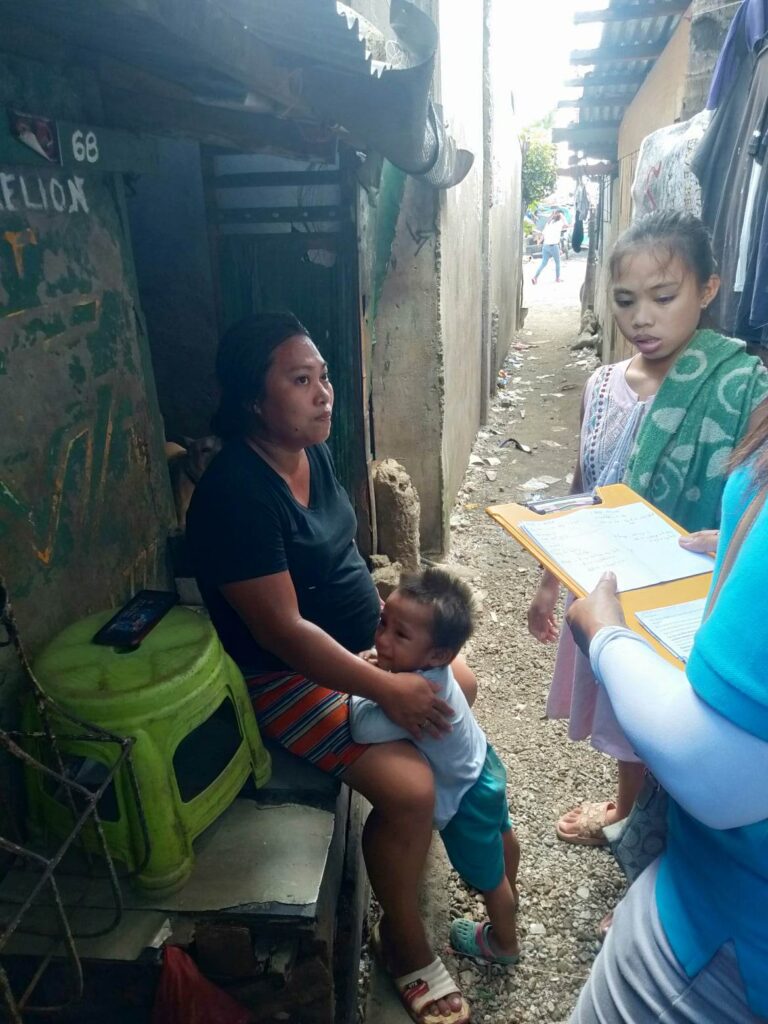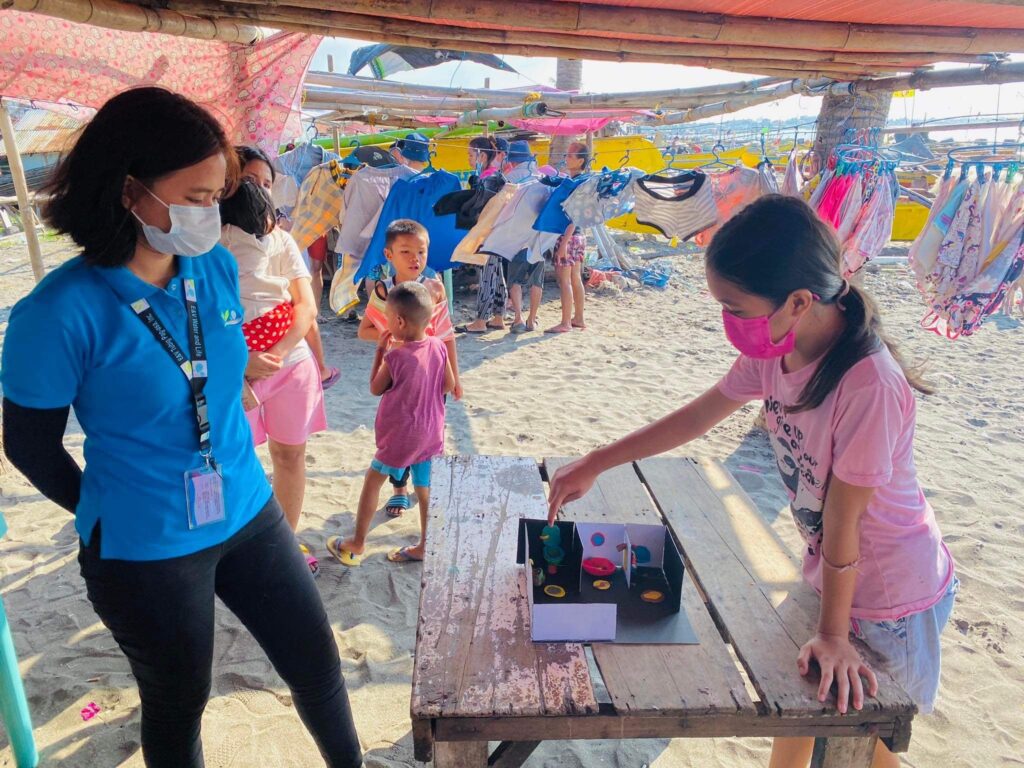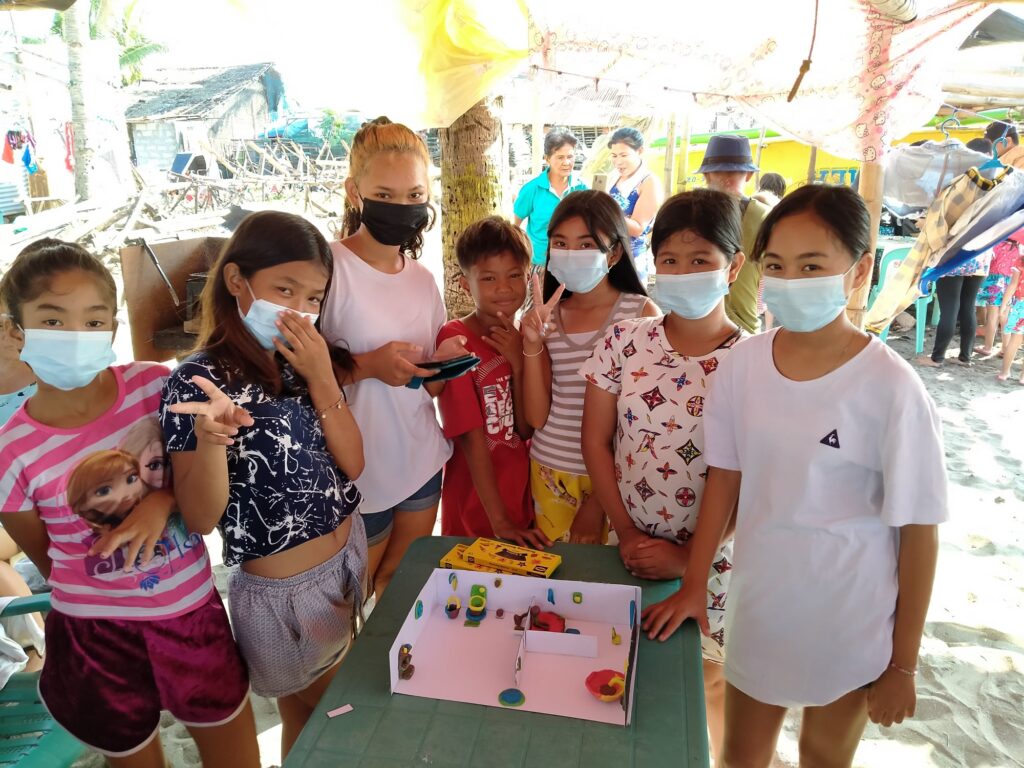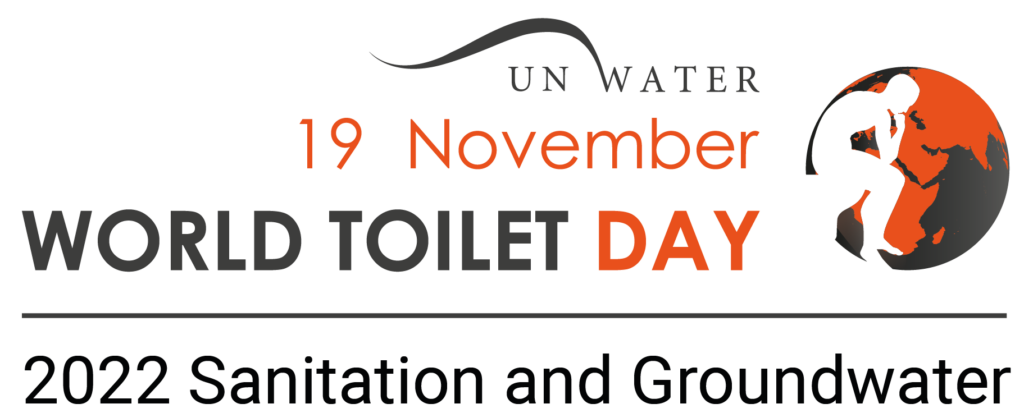Today, 3.6 billion people are still living with poor quality toilets that ruin their health and pollute their environment. Inadequate sanitation systems spread human waste into rivers, lakes and soil, contaminating the water resources under our feet. The link between sanitation and groundwater cannot be overlooked. Safely managed sanitation protects groundwater from human waste pollution. Everyone must have access to a toilet connected to a sanitation system that effectively removes and treats human waste.
In the Philippines, for example, especially urban poor areas lack sanitation infrastructure, and open defecation is still prevalent: More than 4 million people are forced to practice open defecation. In addition to the challenges of securing an adequate water supply, surface water and groundwater is contaminated in some areas due to open defecation and inappropriate management of black water.
Community Engagement Grant speeds sanitation along
The Tangke II area in Cebu looks like of most of the other urban poor areas in the country. In 2021, 350 new water connections for approximately 1,750 people in Cebu and Mandaue were built and firefighting pumps were aquired with funding from the Foundation. However, due to Typhoon Odette which occurred at the end of 2021, many installations were seriously damaged.
“In 2022, we took the first step of our intervention model, on raising community awareness about sanitation, and the sanitation study. The objective is that we first provide water access to the communities and that the communities are informed of the risks and challenges related to Solid Waste and Sanitation and know how to better manage it in order to minimize the impact and ease further management by the authority in charge,” explains Marine Dupond, Partnerships & Communication Officer, Water and Life Philippines
The 2022-grant has so far provided 500 new families with sustainable water access. 600 beneficiaries have been capacitated in improving sanitary condition (still ongoing) and 9,000 beneficiaries will receive WASH awareness training (still ongoing).
Pilot study in sanitation. (accomplished)
Most private latrines in the community are inaccessible to emptying and have never been emptied since construction. Not up to standard, the latrine pits do not have a concrete floor, allowing contaminated water to seep into the ground. Given the geographical location of the community, it is possible to assume that the contaminants progress rapidly toward the sea water. A drainage system previously put in place by the Barangay (local authority), on the main roads of the community of Tangke II conveys the wastewater from the houses directly to the sea without prior treatment. Improvised drainage pipes or concrete gutters set up by the community, undersized and rarely functional, evacuate all wastewater directly to the sea.
“Thanks to this study quantifying the needs of the community, a sanitation pilot project /multiyear project is planned to start next year,” explains Marine Dupond.
Creative celebrations to raise awareness
Water & Life Philippines marks World Toilet Day every year. Last year, the World Toilet Day Celebration was with the theme: “Valuing Toilets”! The team discussed the global situation on sanitation, the health hazard and contamination brought by open defecation, valuing proper sanitation.
They also organized a focus group discussion on having a safe, clean toilet at home and finished by a playful clay molding of ideal toilet contest.
“What is the most striking memory I have from awareness sessions in WASH/Sanitation, is when my child, after my day of work informed me after the activity she attended with Water and Life that it is important to wash hands before and after eating, from using the comfort room, from playing, etc. She also demonstrated how its properly done, and let her younger siblings do it after her. I am proud that she ”re-echo” and shared what she learned from the activity,” says Jessa S. Austria Purok Lapiz, resident in Tangke.

Jessa Austria (sitting) is a resident of the Tangke informal settlement in Cebu, Philippines. Photo: Water & Life Philippines.
This year, the Water & Life team is preparing the celebration of the World Toilet Day with the theme “making the invisible visible”. In collaboration with the Philippines Red Cross, Water and Life Philippines will propose an activity of miniature structure of toilet models using recycled materials for awareness raising.
 Girl showing a model of a toilet. Photo: Water & Life Philippines
Girl showing a model of a toilet. Photo: Water & Life Philippines
Households that have toilets but don’t have access or individual connections to water will be taught how to make a “tippy tap” to address handwashing challenge. In Mandaue, a Community Forum will be organized with the help from the City Sanitary Inspectors of Mandaue Health Office. In Cavite the community will have an activity of slogan writing contest and small symposium. In Leyte island, they plan to organize a spoken poetry contest in Waray, the local language.
What is World Toilet Day?
World Toilet Day has been an annual United Nations Observance since 2013. It was first celebrated in 2001 by the World Toilet Organization.
You can also help spread awareness. Download the official World Toilet Day social media resources in Arabic, Chinese, English, French, Hindi, Portuguese, Russian, Spanish, or Swahili.



